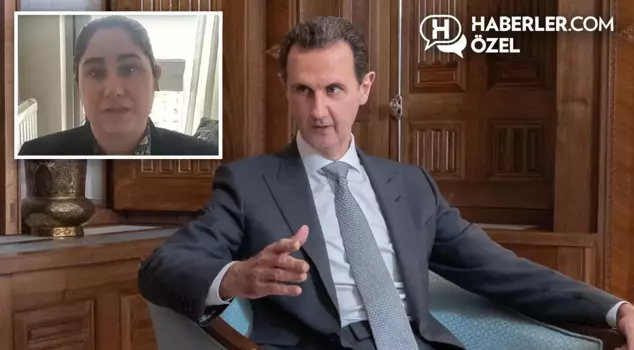
03.12.2024 18:01
Associate Professor Merve Suna Özel Özcan, who was a guest on Haberler.com, stated that the Assad regime has made three mistakes. Özcan mentioned that the first mistake was not cooperating with Turkey to ensure stability in the region during the Arab Spring process, the second was failing to take steps for the full implementation of UN Security Council Resolution 2254, and the third was related to the Astana Platform. Özcan said, "If these three mistakes had not been made, or if a consensus area had been established, we could have seen a very different Syria."
Associate Professor Dr. Merve Suna Özel Özcan from Kırklareli University Faculty of Economics and Administrative Sciences was a guest of Melis Yaşar, the host of the program published on Haberler.com. Özcan evaluated the takeover of Aleppo, Idlib, Hama, and Tel Rifaat by opposition groups starting from November 27.
"THE CARDS IN THE MIDDLE EAST HAD BEEN SHUFFLED, THEY WERE JUST TRYING TO DISTRIBUTE THEM"
Stating that the process began not on November 27 but in 2011, Özcan said it emerged as a volcano simply because stability was not achieved. Özcan mentioned that with the attacks launched by Israel in Gaza starting on October 7, Pandora's box was opened, saying, "As soon as actors like Israel and America started to intervene, it was said that the cards were being reshuffled again, especially in the Middle East, but actually, the cards had already been shuffled; they were just trying to distribute them. Therefore, the situation we see in Syria today is also like this."
"THE ASSAD REGIME HAS THREE MISTAKES"
In response to a question about Turkey's stance in this process, Associate Professor Dr. Özcan said:
"I believe that the Assad regime has three main mistakes. The first was not acting jointly with Turkey to ensure stability in the region when the Arab Spring process began. This was the biggest mistake in 2011. The next mistake was not taking steps for the full implementation of the United Nations Security Council's (UNSC) Resolution 2254. The fundamental approach in this resolution was to establish an urgent ceasefire in Syria and reach a political solution. Because any process that does not reach a political solution results in a failed state example, just like the process Syria is experiencing today. The third is perhaps particularly relevant to the recent period, which is the Astana Platform. Now, when we look at this process, what did Syria do in a process involving the most important actors in the region, namely Russia, Turkey, and Iran? It could not manage this crisis in a real sense. So let's not just think of it as Syria; what did they do at points where Russia and Iran's interests conflicted? They marginalized Turkey's approach. They did not respond to Turkey's quest for stability. In the end, where have we come? We have seen a new explosion area in the geography of the Middle East after October 7. If these three mistakes had not been made or if a consensus area had been established, we could have seen a very different Syria since 2011. Therefore, the policy pursued by Turkey is very valuable; this needs to be understood now."
"TURKEY IS TRYING TO CREATE A SAFE ZONE IN THE REGION"
Özcan stated that Turkey has been trying to create a safe zone in the region for a long time, emphasizing that while creating this safe zone, steps have been taken to prevent a wave of migration in the border area and to ensure that people do not have to leave their homes and lives. Özcan mentioned that this has two dimensions: "To protect the people in the region and at the same time to prevent migration waves."
"WE MAY ENCOUNTER A LARGE WAVE OF MIGRATION AGAIN"
Özcan stated that there has been no negative treatment against civilians in the areas under control, indicating that people there have not been displaced from their homes. However, expressing uncertainty about what the next move will be, Associate Professor Dr. Özcan said, "The rapid progress in such a short time brings to my mind this: When Napoleon was heading to Moscow, there was no Russian army in front of him at all, but in the end, he entered Russian territory with 600,000 people and left with about 50,000 or 60,000. If we encounter such a scenario, then we would face a very large wave of migration again."